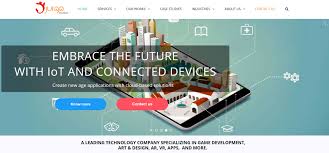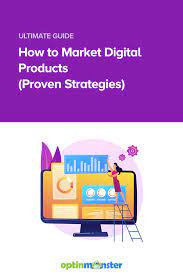In the modern world, mobile application developers are becoming increasingly important in the tech industry. With the proliferation of mobile devices and the ever-growing demand for new applications, mobile application developers are in high demand.
Mobile application developers are responsible for creating apps that are compatible with various mobile devices. They must be knowledgeable in a variety of programming languages and technologies, including HTML5, Java, Objective-C, Swift, and more. Mobile app developers must also have a creative eye for design and user experience.
The job of a mobile app developer requires them to create applications that are both functional and aesthetically pleasing. They must also be able to troubleshoot any issues that may arise during the development process. Mobile app developers must also stay up to date on the latest trends in order to create innovative apps that meet customer needs.
Mobile application development is an exciting field that offers many opportunities for career growth and advancement. With the right skills and dedication, a mobile app developer can make a successful career out of this growing field. Mobile app developers can work independently or as part of a team depending on their skill set and experience level.
Those interested in becoming a mobile application developer should have strong problem solving skills as well as knowledge of programming languages such as HTML5, Java, Objective-C, Swift, etc. Additionally, they should possess strong communication skills in order to effectively collaborate with other members of their team or clients if necessary.
Overall, mobile application development is an exciting field with plenty of potential for those who possess the necessary skillset and dedication to succeed in this growing industry.
These are the 7 most commonly asked questions about becoming a mobile application developer.
- What skills do I need to become a mobile application developer?
- How much does it cost to develop a mobile application?
- What platforms should I consider for developing my mobile app?
- What are the best practices for developing an effective mobile app?
- How can I monetize my mobile app?
- How long does it take to develop a mobile application?
- What technologies should I use when developing a mobile app?
What skills do I need to become a mobile application developer?
- Programming Languages: Knowledge of coding languages such as Java, Objective-C, Swift, HTML5, CSS3 and JavaScript is essential for developing mobile applications.
- Platforms: Experience with the Android and iOS platforms is important for understanding how to develop apps for each operating system.
- Design: A good eye for user interface (UI) design will help you create an app that looks good and functions well on a variety of devices.
- Databases: Familiarity with database technologies such as SQLite can be beneficial if your app requires data storage or retrieval from a database.
- APIs: Understanding how to use application programming interfaces (APIs) like Google Maps API can help you create more powerful apps.
- Troubleshooting: Being able to debug code and identify problems quickly will help you develop apps faster and more efficiently.
How much does it cost to develop a mobile application?
The cost of developing a mobile application can vary widely depending on the complexity of the app, the platform(s) it will be built on, and the development team’s experience. Generally speaking, a simple app can range from $5,000 to $50,000, while more complex apps can cost upwards of $100,000 or more.
What platforms should I consider for developing my mobile app?
The most popular platforms for developing mobile apps are iOS (Apple’s mobile operating system) and Android (Google’s mobile operating system). Other options include Windows Phone, Blackberry, and HTML5.
What are the best practices for developing an effective mobile app?
- Start with a solid plan: Before you start developing your app, it’s important to have a clear understanding of what you want to achieve and how you plan to do it. Create a detailed plan that includes the features, functionality, and design of the app.
- Consider user experience: When designing your mobile app, consider how users will interact with it. Think about how easy it is for users to navigate through the app and how quickly they can find the information they need.
- Test before launch: Before you launch your mobile app, make sure to test it thoroughly for bugs and performance issues. This will help ensure that your users have a positive experience when using the app.
- Monitor usage and feedback: Once your mobile app is launched, monitor usage and feedback from users in order to identify any areas where improvements can be made or features added. This will help ensure that your app remains relevant and up-to-date with user needs over time.
How can I monetize my mobile app?
- In-app Purchases: Offer users the ability to purchase virtual or physical goods within the app.
- Subscriptions: Offer users access to premium content or features for a recurring fee.
- Advertising: Place ads within the app and receive payment when users view or click on them.
- Sponsorship: Partner with a brand and receive payment for promoting their products or services through the app.
- Paid Downloads: Charge users an upfront fee to download the app from an app store.
How long does it take to develop a mobile application?
The answer to this question depends on the complexity of the app and the size of the development team. Generally speaking, it can take anywhere from a few weeks to several months to develop a mobile application.
What technologies should I use when developing a mobile app?
- Mobile Platforms: Depending on which platform you are targeting, you may need to use specific technologies. For instance, if you are developing an app for Android, you may need to use Java and the Android SDK. If you’re developing for iOS, then Swift and the iOS SDK will be necessary.
- Backend Technologies: You will need to use a backend technology for your app, such as Node.js or Ruby on Rails, to store and manage data associated with your application.
- Database Technology: To store user data and other information related to your application, you will need a database technology such as MongoDB or PostgreSQL.
- Cloud Services: Depending on your application’s needs, you may want to use cloud services such as Amazon Web Services or Google Cloud Platform for hosting and managing your application’s infrastructure.
- APIs: If your application requires access to external data sources or services, then you will need to use APIs (Application Programming Interfaces) to integrate them with your app.




